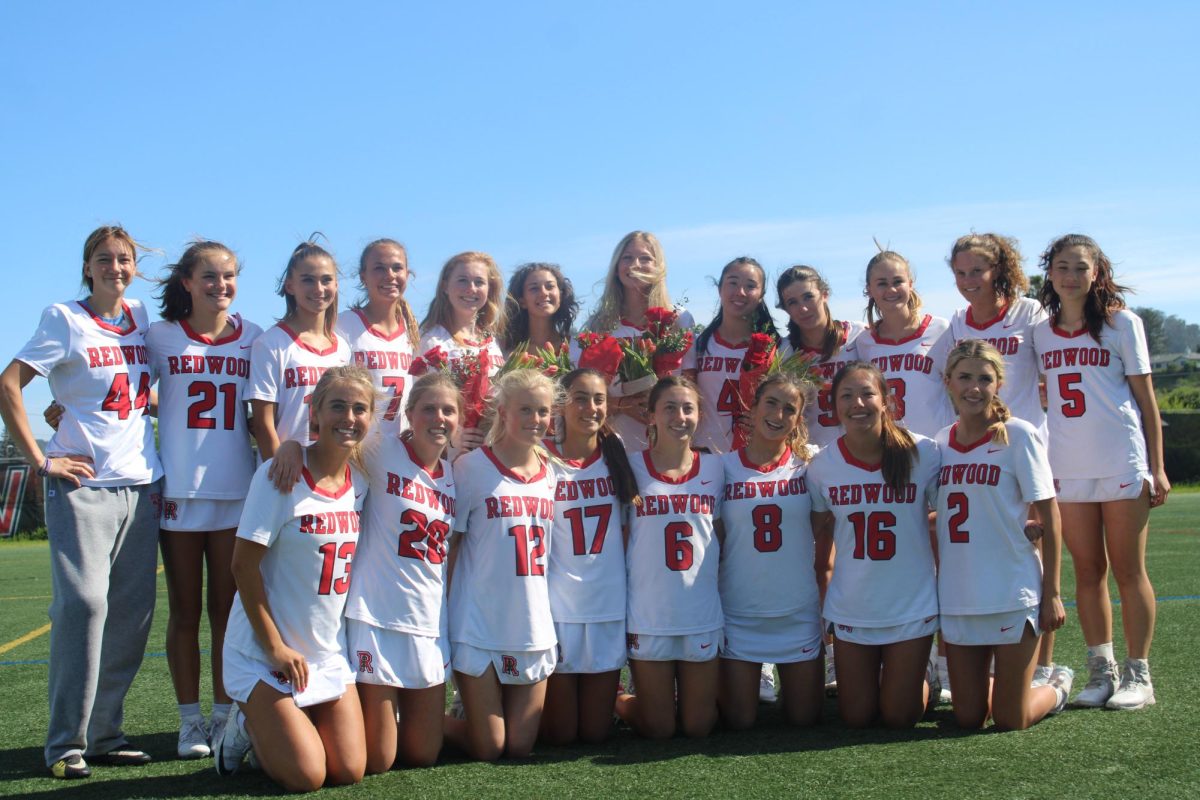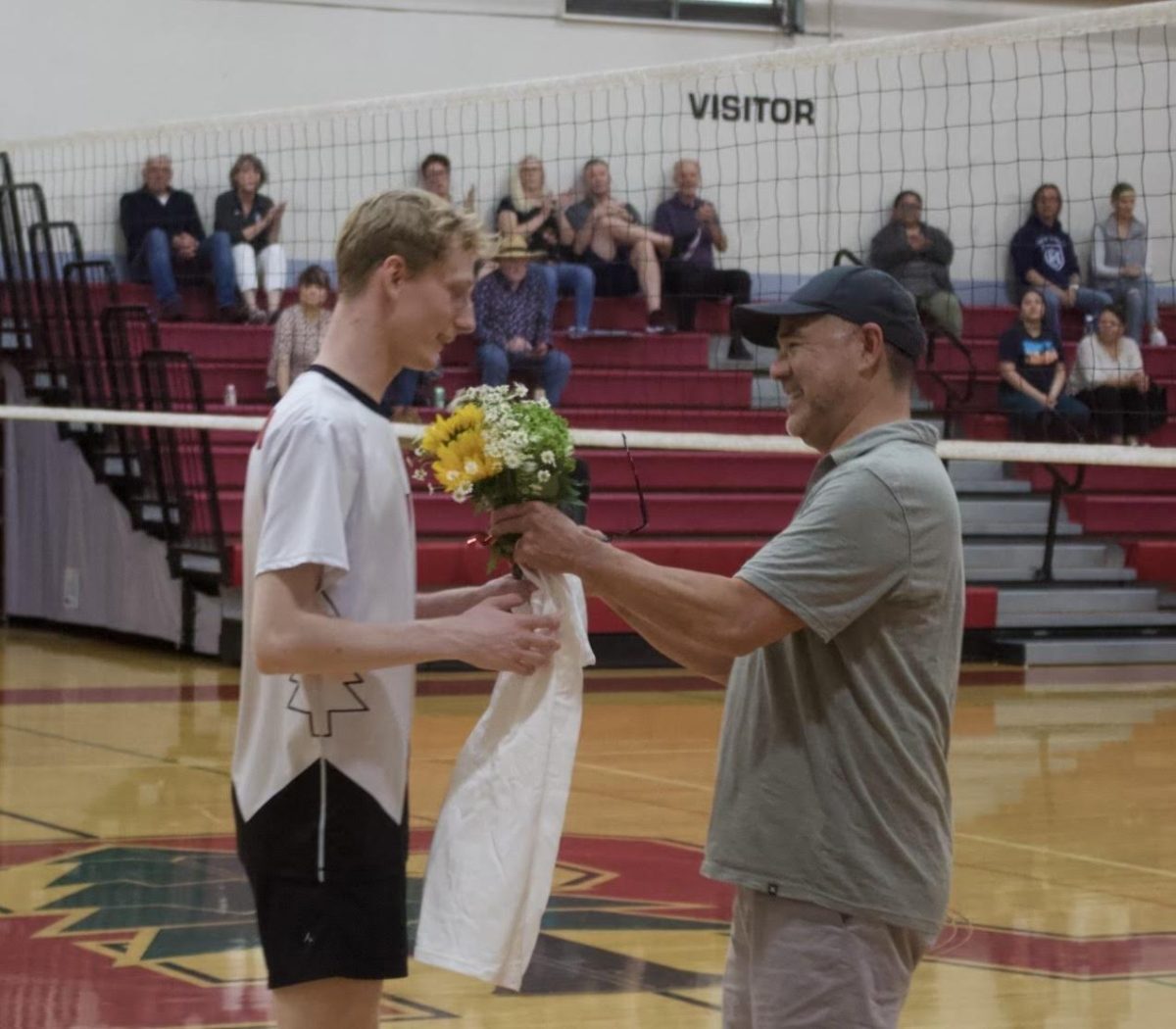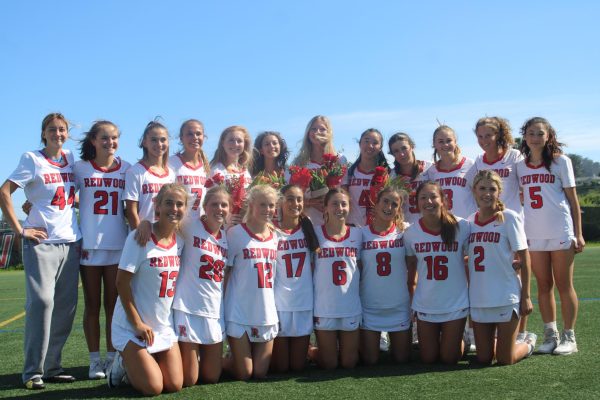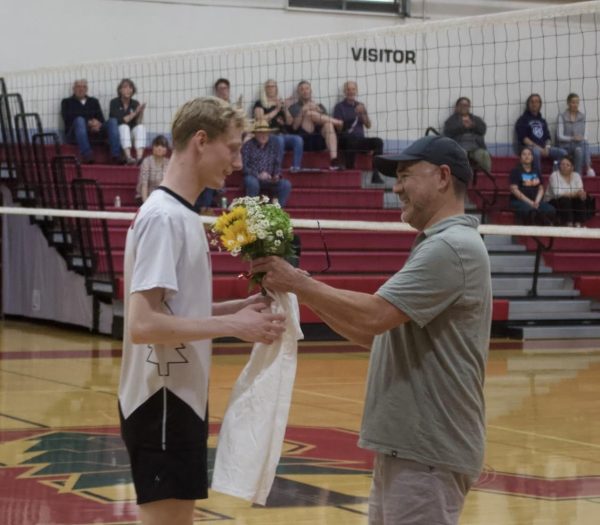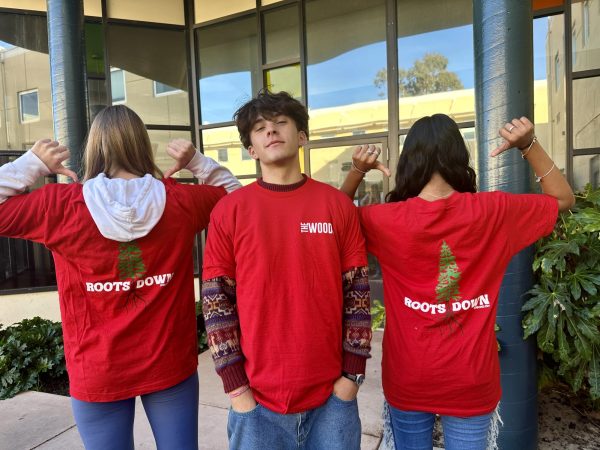Alumni focus their VISion on female athletics
December 13, 2020

It’s a rainy evening at the Redwood campus and the girl’s basketball team has the most important game of their season against their rivals: Marin Catholic. Redwood has been practicing for weeks preparing for this game, yet the gym is empty except for a few well-meaning parents. The intense ring of the scoreboard signals the start of the fourth quarter; only then do eager students and families alike rush through the doors as the boys’ game approaches. This was the experience of collegiate basketball players and Redwood alum Jenny Walker and Gabby Beltran.
“It felt like a slap in the face,” Beltran said. “They were not actually trying to come watch our games and appreciate the effort that we put into this sport,”
A report from the Women’s Sports Foundation (WSF) details the discrimination girls of all ages are still facing in the sports industry. The report states that, in 2008, the drop-out rate for female athletes was two times higher than that of their male counterparts at age 14 and even greater for girls of color. With a mere 3.2 percent of sports media coverage dedicated to women’s athletics, 70 percent of surveyed female leaders say that this lack of coverage plays a role in limiting the participation of girls in sports.
“In high school, and just growing up as a female athlete, the [Women’s National Basketball Association] and [other female sports] get overlooked until a championship or the women’s national team for soccer wins a gold medal,” Walker said. “For us to be competing at the same level, with the same skill set, and not get the recognition we deserve is really frustrating.”
In spite of this, both Walker and Beltran were inspired to advocate for female athletes and joined Voice in Sport (VIS), a non-profit organization founded by Stefanie Strack. Strack sought to combat gaps in the sports industry by amplifying the voices of female athletes by creating a platform that provides mentorship from professional and collegiate female athletes. The content ranges from mental health to training and recovery, and the platform supplies advocacy tools for young female athletes to help drive the change.

“We’re trying to create a safe space for girls in sports where they have a trusted community of female athletes and experts that they can go to on these topics, have discussions, join live sessions, have one-on-ones and read articles. Everything is geared towards helping them have a better journey,” Strack said.
As a former Division I soccer player herself, Strack started VIS because of the lack of representation and information available for female athletes. Strack’s passion for sports led her to Nike, where she worked for 14 years before becoming the Chief Executive Officer of Rag & Bone, a fashion brand. These two jobs improved Strack’s leadership skills; however, after realizing she wanted to make an impact on women’s sports advocacy, she left her job to create VIS. The nonprofit gained traction after the United States Women’s Soccer Team won the World Cup in France in 2019.
“The soccer team won and there was so much momentum. I needed to take my experience from Nike and build a new sports company that was going to really be there for girls. To have the voice of female athletes at the center, not on the side, not for just a seasonal campaign, but at the center all the time,” Strack said.
Walker, a sophomore at New York University and player on their women’s basketball team, initially connected with Strack in 2019, where she helped the developing company improve their social media platform. Walker is now interning as a VIS creator, where she focuses on social media. Additionally, Walker is gaining experience with marketing and public relations, skills that she can use in the future.
“My biggest takeaway from this experience has been seeing how a company works internally,” Walker said. “I eventually want to work with any sports company, but just seeing how articles are written, seeing the planning of [content] and looking ahead to figure out how we can reach our audience, [has allowed me] to see the technical side of the [company].”

Walker has since recruited her former teammate and friend Beltran, a sophomore at Lewis and Clark College and a player on their women’s
basketball team. Beltran is using her personal Instagram platform as well as talking with her teammates and coaches to spread and promote information about VIS. She wants to become the mentor she would have benefitted from growing up.
“I did the whole recruiting process pretty much all by myself. My parents had never gone through anything like it and I had no idea what I was getting myself into,” Beltran said. “If I had this platform, I would have known how [the process works] and it would have been less stressful. Even if I had this from a younger age, [I would have learned] how to be healthy, eat better and actually take care of my body.”
Although VIS is only in the beginning stages, Strack hopes that VIS will become a big part in the world of sports advocacy, specifically in Title IX enforcement.
“Long term, I want to make sure that female athletes have a voice within the sports industry,” Strack said. “I would like to see VIS leading conversations on policy that will help women in sports at all levels. I hope that VIS is the go-to resource for female athletes, and that we become their trusted community that they can count on to have real conversations, the hard conversations, but do it in a way that is supportive and super inspiring.”



